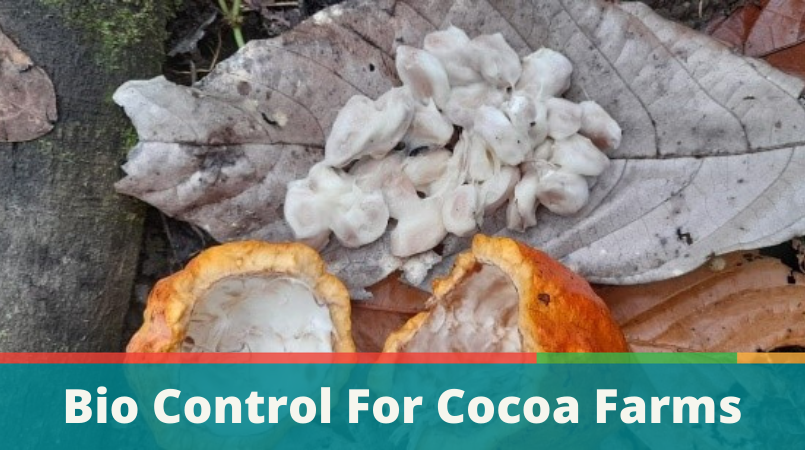
The EU-STREIT Programme in Papua New Guinea, in its mission to support rural families, women, and youth in the cocoa value chain, explores climate-smart and sustainable agricultural practices. This includes integrated pest management (IPM).
To examine and introduce in practice the potential beneficial role of the fire ant as a measure against the Cocoa Pod Borer (CPB), the Programme recently signed a LoA with New Guinea Binatang Research Centre (NGBRC).
As part of this partnership, NGBRC will provide exploratory research aiming at providing biological control of CPB pest with a focus on ants. This research institute will also work with rural farmers, including women and youth, to provide technical advice on mitigating unsustainable practices in pest management and supporting economically feasible ways to rehabilitate old cocoa trees.
Programme Coordinator for the FAO-led EU-STREIT PNG, Dr Xuebing Sun, welcomes this important partnership. He describes it as a potential breakthrough measure to combat CPB, which has affected production, income, and livelihood for thousands of rural families in the Sepik Region.
“Cocoa is the lifeline for many rural families, hence this collaboration is to realization of the concept of sustainable agriculture and climate-smart practice for increased production, and to also give guidance on the adaptation of agriculture practices like the use of fire ants as a means of biological control of CPB,” said Dr Sun.
”The bottom line is we want to support our smallholder farmers to adopt climate-smart practices so that they can continue to produce to support their wellbeing,” added Dr Sun.
Hence the EU-STREIT PNG, in its endeavour to support cocoa and vanilla development in the region, engaged NGBRC between 1 November 2021 and 31 October 2022 to research, write and illustrate two booklets in Tok Pisin on sustainable agriculture and climate-smart practices for cocoa and vanilla farmers, written specifically on the level accessible to village small-scale family farmers.
Training of farmers is another important activity under this collaboration. NGBRC will also design and deliver in-person village-based training on sustainable agriculture and climate-smart practices to 2000 EU-STREIT PNG supported farmers in 10 locations in the Sepik.
With reference to the CPB, scientists from this research centre will conduct pest control adaptive research on environmental requirements of the pest and ways to control it, focusing on the potential for biological control by ants.
EU-STREIT PNG Senior Agricultural Officer, Dr Rabi Rasaily said, “Cocoa Blocks are heavily infested with Cocoa Pod Borer pest which has led to a significant reduction in production. In some areas of (the) Sepik, cocoa farmers have reported the benefit of “fire ants” on controlling CPB. Therefore, the adaptive research in collaboration with New Guinea Binatang Research Centre provides scientific recommendations on the advantage of ants in biological pest control while considering the existing eco-system.”
